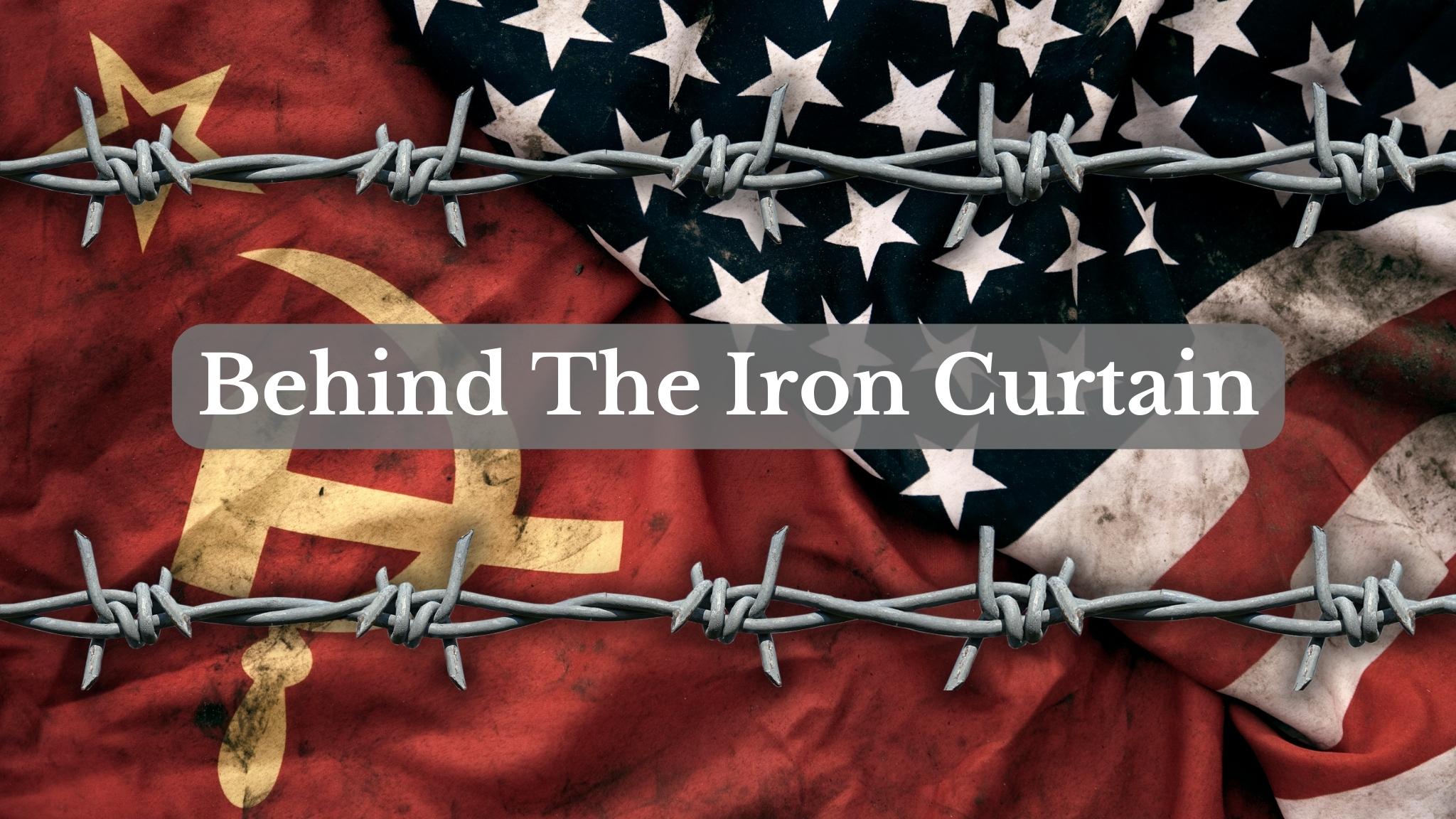There’s something thrilling about the life of a spy; it’s romanticized in countless movies and novels across various genres, from James Bond and Jason Bourne to Natasha Romanoff and Sterling Archer. But what do we find so fascinating about these characters and their stories? The cool gadgets and killer action? The outrageous villains? Perhaps we’re simply fascinated by a person’s ability to disappear and effortlessly become someone else.
Whatever the case, the appeal of spy thrillers only grows stronger over the years. This was especially true during the Cold War, which marked the peak of espionage activity across the globe. Spies took to the global stage and the public became even more enamored with their stories.
But we often forget the realities of espionage — while perhaps not as glamorous, the life of a spy is just as thrilling. With life and death on the line, as well as the fate of a country, how could it not be?
Here are seven thrilling tales of real-life espionage throughout the Cold War.
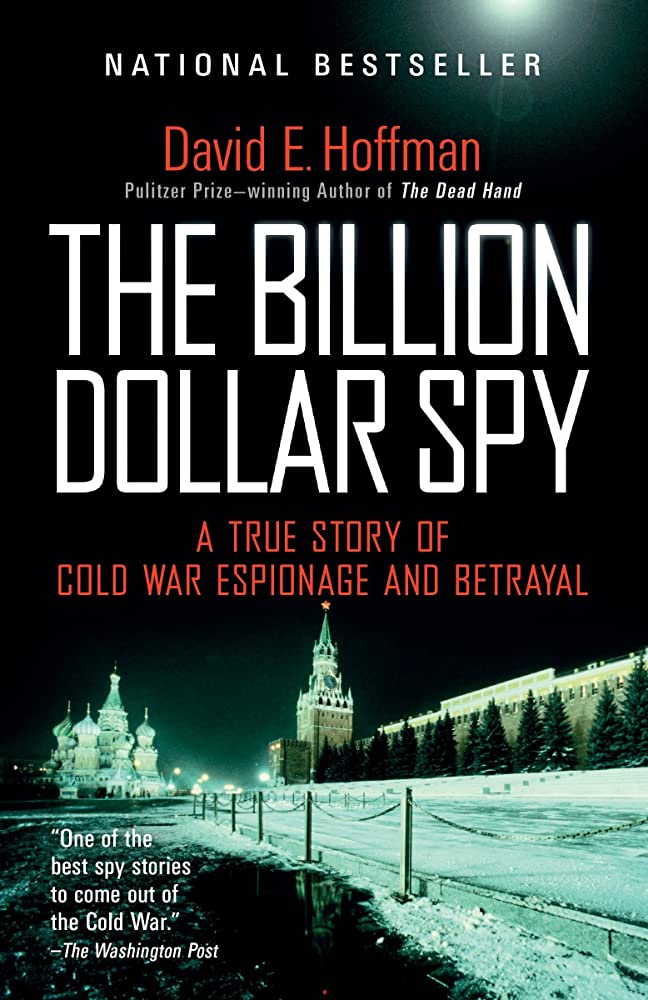
The Billion Dollar Spy: A True Story of Cold War Espionage and Betrayal by David E. Hoffman
While pumping gas one day, the chief of the CIA’s Moscow station is approached by a man with shocking information: details on top-secret Soviet military technology. Adolf Tolkachev, an engineer in a Soviet military design bureau, quickly becomes one of the most valuable US spies during the height of the Cold War, handing over Soviet secrets that allowed the US to gain superiority in the skies over Europe. But keeping a foothold in Moscow was always a risk, and Tolkachev was no exception. After evading KGB detection for years, a shocking betrayal puts them all at risk. The Billion Dollar Spy is a poignant portrayal of a man motivated by the depravity of the Soviet state and spying against his own country. Drawing on details obtained in previously classified CIA documents and interviewing participants, Tolkachev’s story reads like an espionage thriller.
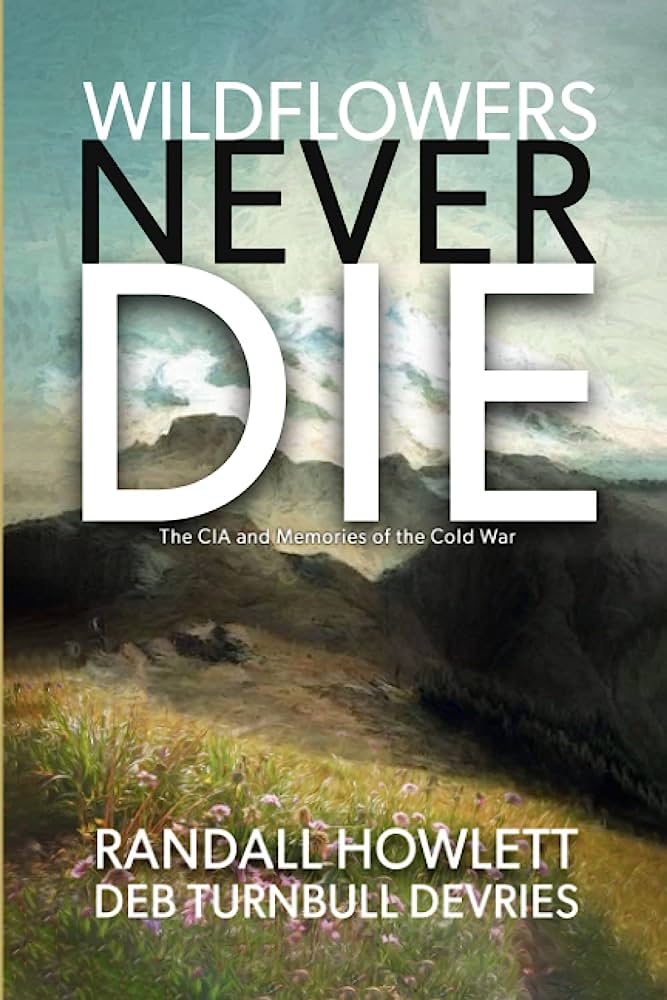
Wildflowers Never Die: The CIA and Memories of the Cold War by Randall Howlett and Deb Turnbull DeVries
Wildflowers Never Die chronicles the first three decades of the Cold War from a third-party narrative perspective and follows the careers of five key CIA agents involved in various hotspots during that time period. First-hand accounts and true stories told by the agents and those close to them are not only abundant but explicit and raw, providing readers with unfiltered accounts of the atrocities committed in the name of justice. The decades covered include the Chinese Civil War, the Russo-Japanese war and the fall of Vietnam. To a lesser extent, the authors recount their own experiences growing up as members of the Cold War generation and reveal how these conflicts seeped into their everyday lives. Filled with eye-opening accounts and carefully researched history, this book is not one to miss. (Read the full BookTrib review here.)
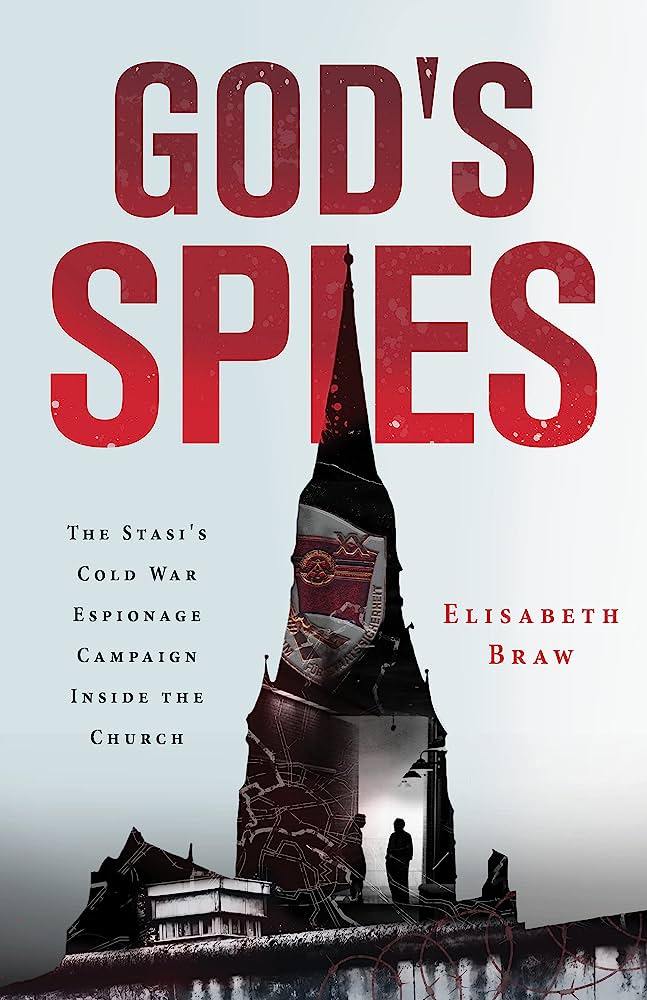
God's Spies: The Stasi’s Cold War Espionage Campaign Inside the Church by Elisabeth Braw
When thinking about the thrilling espionage and cloak-and-dagger tactics of the Cold War, one wouldn’t likely think of church. But during the relatively short reign of East Germany, the country’s notorious secret police, the Stasi, developed a highly successful “church department.” Using persuasion rather than threats, the Stasi recruited roughly 10% of the country’s predominantly Lutheran churches’ workforce. These clergy spies — pastors, professors, seminary students and bishops — spied on their colleagues and other church members, absorbing an unsettling amount of intel. But the department’s mission ultimately failed; church-led protests erupted in 1989 and ultimately helped lead to the Berlin Wall being brought down. In God’s Spies, Braw uses personal accounts from former Stasi officials along with copious amounts of research to bring readers a thrilling tale of oppression, integrity and temptation.

Agent Sniper: The Cold War Superagent and the Ruthless Head of the CIA by Tim Tate
Michal Goleniewski, code name Agent Sniper, was one of the West’s most valuable spies during the early Cold War. Working at the top of Poland’s espionage service, Sniper smuggled thousands of top-secret Soviet documents from behind the Iron Curtain. Then, in 1961, he abandoned his family and defected with his East German mistress into American territory. In America, he exposed more than 1,600 active Soviet spies in the West — more than any single spy in history. But such a record still wasn’t enough to save him. Two years later, he was abandoned by the US government over concerns of his mental stability and trustworthiness. In this eye-opening tale of love and treachery, greed and insanity, readers won’t know who to trust.
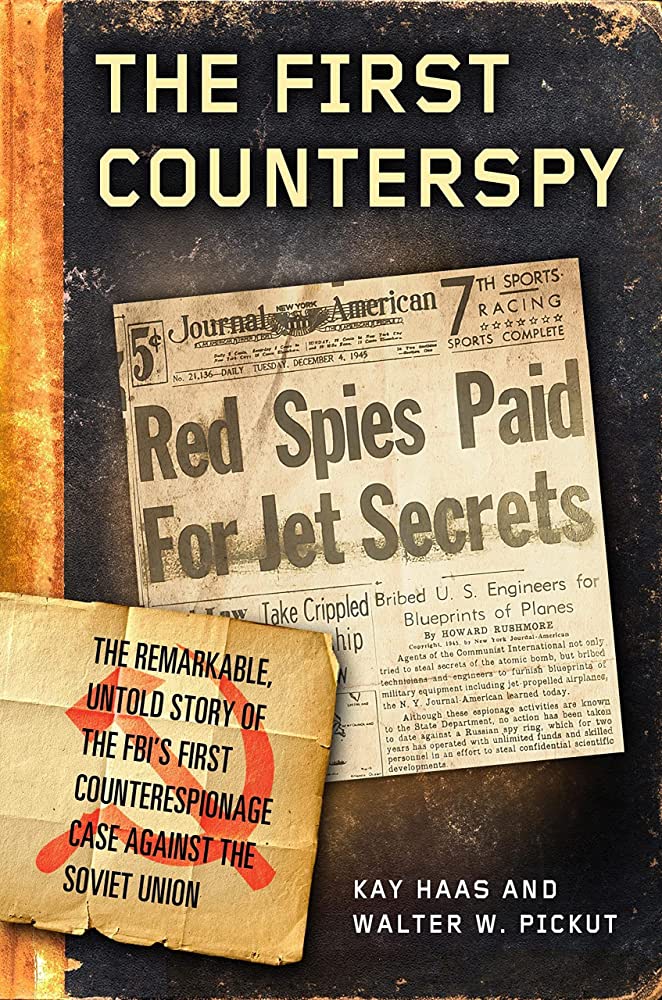
The First Counterspy: Larry Haas, Bell Aircraft, and the FBI's Attempt to Capture a Soviet Mole by Kay Haas and Walter W. Pickut
In WWII, Larry Haas and Leona Franey, an aviation engineer and head librarian at Bell Aircraft in Niagara Falls, NY, are approached by the suspicious Andrei Schevchenko. When it’s uncovered that Schevchenko is a Soviet spy, the FBI recruits Haas and Franey to let themselves “be seduced” by Schevchenko to learn enough about him to undermine and destroy him. As tensions rise amidst their intricate dance of spy versus spy, Schevchenko raises the stakes by targeting Larry’s daughter, Kay. Through Kay’s point of view, readers witness the chilling events that haunted her life, including kidnapping and assassination attempts. This propulsive history of America’s first civilian counterspy is an important effort of research and memory that reveals the fatal flaws in early Cold War espionage measures, countermeasures, and the recruitment and training of spies and counterspies. (Read the full BookTrib review here.)
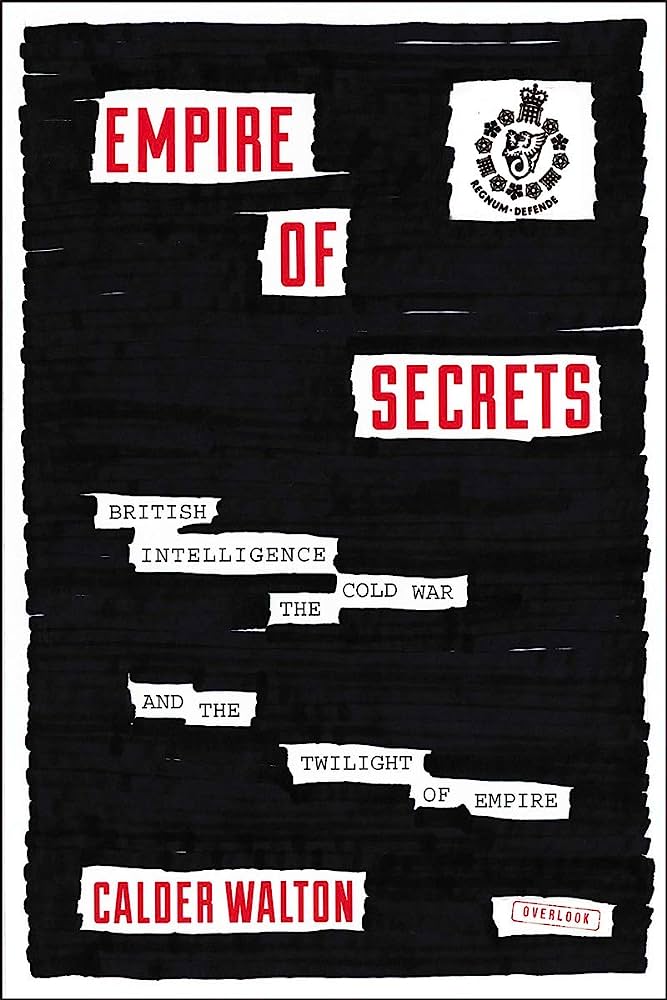
Empire of Secrets: British Intelligence, the Cold War, and the Twilight of Empire by Calder Walton
Empire of Secrets brings some of the darkest secrets of British espionage into the light, revealing previously unsung heroes and villains of the spy world. While the CIA is largely assumed to be the principal actor in the counterintelligence war against the KGB, Britain’s expansive colonial intelligence system played a key role in destabilizing and eliminating the Communist threat. But Britain’s efforts were often hidden more in the shadows, their victories as invisible to the larger world as their defeats. Pulling from a vast wealth of documents and personal papers, Empire of Secrets is the first book to utilize records from the Foreign Office’s secret archive, which contains some of the British empire’s darkest and most shameful secrets — from psychological torture on German agents in London, to building a fake city in North Africa and waging urban warfare campaigns in Palestine and the Arabian Peninsula.
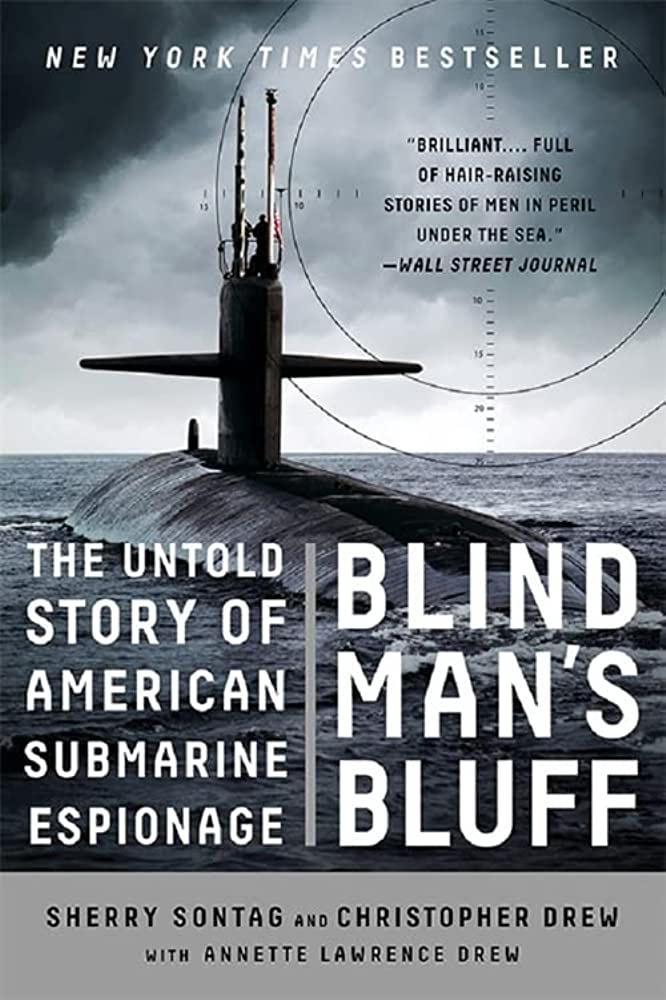
Blind Man's Bluff: The Untold Story of American Submarine Espionage by Sherry Sontag and Christopher Drew, with Annette Lawrence Drew (contributor)
An epic story of adventure, ingenuity, courage and disaster beneath the sea — as thrilling as The Hunt for Red October and as tragic as Das Boot. In this engaging mix of first-rate journalism and historical narrative, sailors reveal the secret stories of life underwater, of medals awarded in secret and deaths disguised with disinformation. Unforgettable characters undergo courageous missions to track Soviet missile subs, monitor Soviet harbors and missile tests, and retrieve lost Soviet equipment and weapons. Some of their more daring feats include tapping into undersea Soviet telephone cables, plotting with the CIA and Howard Hughes to steal a Soviet sub, and locating a live hydrogen bomb lost by the Air Force. But Blind Man’s Bluff isn’t just an exploration of submarine warfare and espionage; it’s stories of bravery and tragedy.

